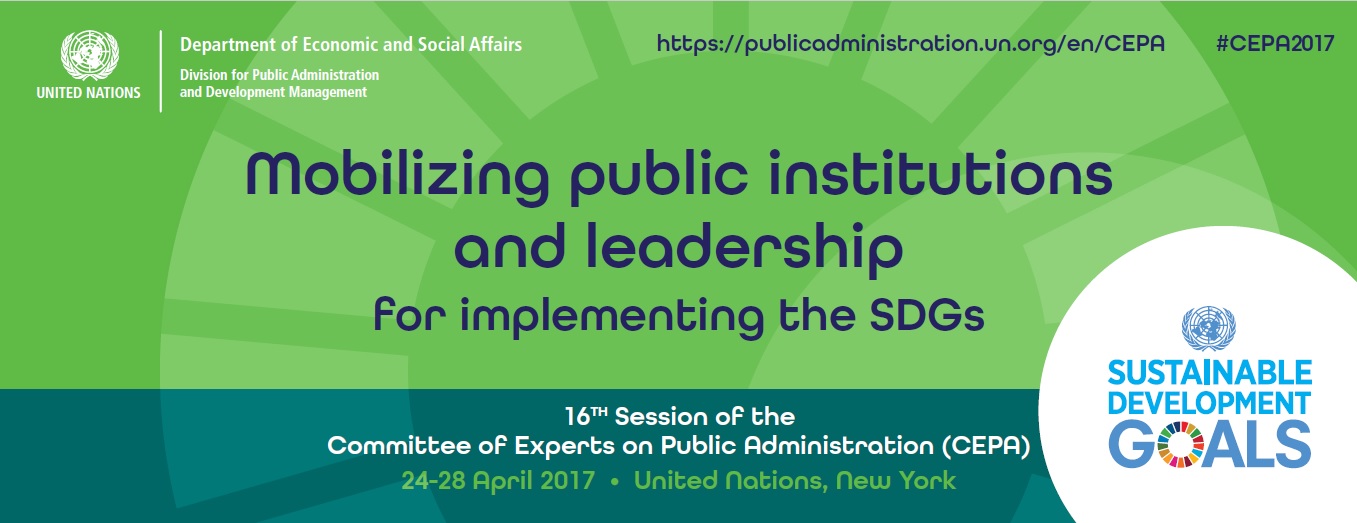The Committee of Experts on Public Administration held its sixteenth session in New York from 24 to 28 April 2017. Its theme was “Ensuring effective implementation of the Sustainable Development Goals: leadership, action and means”.
Report
Arabic | Chinese | English | French | Russian | Spanish
A key message of the session was that government and public institutions have the leading role to implement the SDGs and pursue policies to leave no one behind.
The Committee stressed that leadership is critical for driving SDG implementation. The highest level of government should continuously push implementation of the SDGs. Leadership should also be encouraged at all levels of government and among public servants. Leaders should build commitment to SDG implementation within society. There is need to implement new approaches to fighting corruption and to ensure a merit-based civil service. This, along with demonstrating the impact of public policy on SDG progress, is necessary to rebuild people’s trust in government.
The Committee underscored that local governments have a critical role in reaching the SDGs and achieving equity. We should move away from a top down relationship and, instead, central and local governments should work as partners. Decentralization may be necessary to accelerate progress on some of the SDG targets but the resources and capacities of local governments should be commensurate with their responsibilities. This may take some time to materialize. So, for some SDG targets, functions may need to remain with central government, otherwise there may be a risk of stalled implementation.
Another message of the Committee was that poverty eradication policies should be based on a solid consensus across all income groups. Policies should be developed in close consultation with all stakeholders, including the poorest. Poverty eradication should be established as an overarching objective of all parts of government and pursued through a whole-of-government approach. Integrated approaches are key to implementing social protection floors in particular. There is need to develop the capacities of institutions to find new ways to promote job creation and decent work.
The Committee also underscored that it is necessary to launch efforts to rally public servants around the SDGs and instill a sense of commitment, new ways of working based on participation and engagement, new skills, and a greater sense of professionalism and ethics. The Committee noted that the SDGs may call for specific governance improvements in a variety of different contexts. It accordingly started to define a set of voluntary principles and practices of effective governance for sustainable development grounded in the 2030 Agenda and other United Nations agreements.
During the session, participants from Brazil, Chile, Dominican Republic, Guatemala, Kenya, Malaysia and Morocco made presentations on various aspects of their efforts to promote effective implementation of the SDGs. The Committee will convey its draft resolution and report to ECOSOC. It adopted a contribution to the high-level political forum.
 مرحباً بكم في الأمم المتحدة
مرحباً بكم في الأمم المتحدة 
